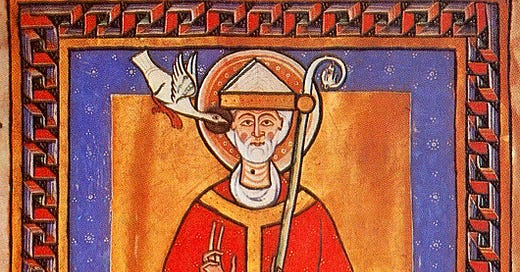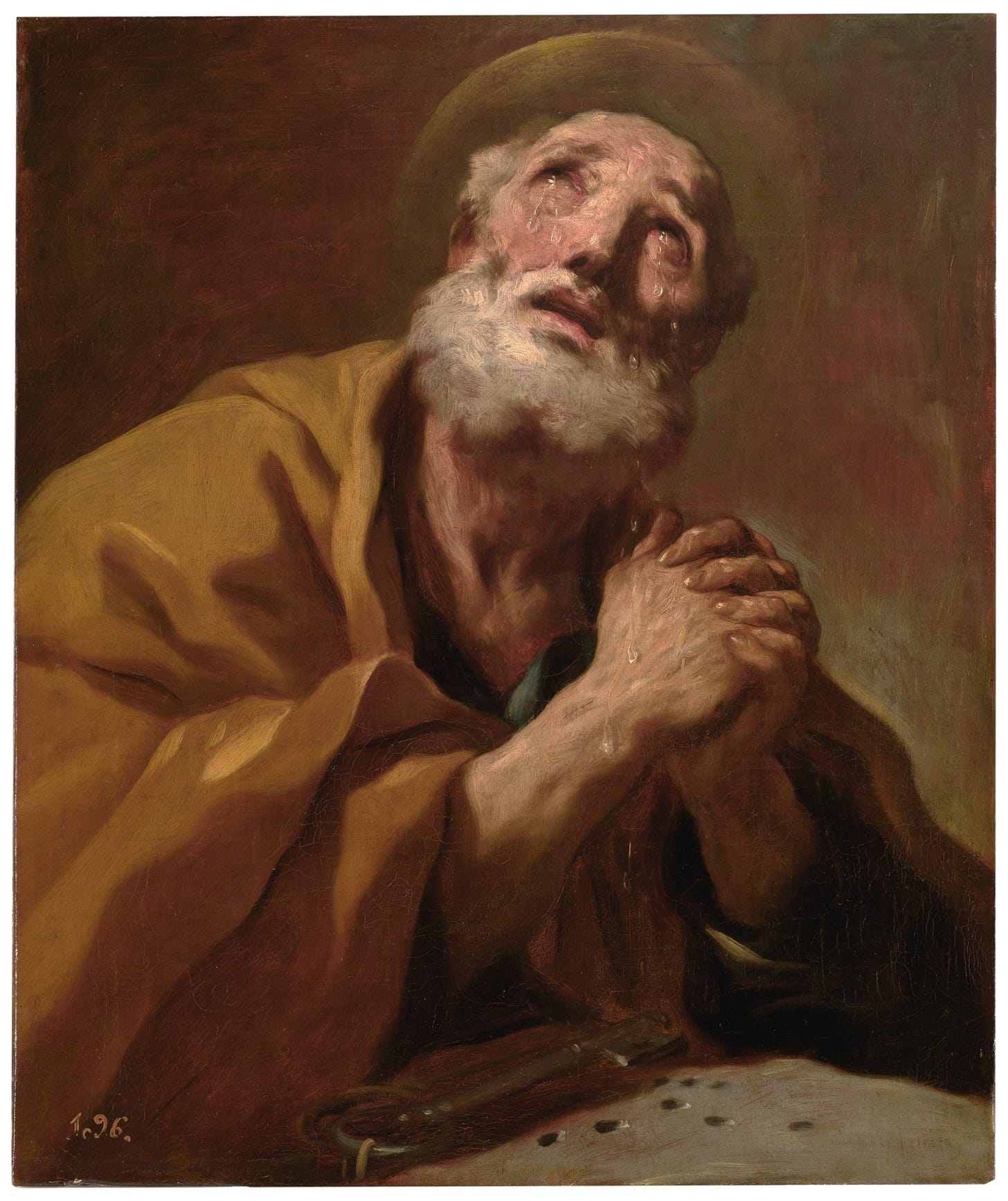As we have entered the Septuagint season in the Roman rite and the Triodion in the Byzantine, we inaugurate the Easter cycle with the Church's call to penance in the coming Great Lent.1
As a foretaste, the Church responds to the Word of God already in her prayer of the Dominica V post Epiphaniam: ‘Heal me, Lord God, by the medicine of penance (Sana me, Domine, medicamentum paenitentiae, Deus)’ (Nocturnale Monasticum, responsory to Lesson XI). Yes, penance is the medicine of God's grace. We are sick and Jesus Christ, our Physician, gives us the medicine we need by his great mercy.
1. The various meanings of penance.
Penance has various meanings: a) it is a sacrament by which the grace of the forgiveness of our sins is conferred on us; b) there are external acts of penance such as fasts, vigils, mortifications, pilgrimages; c) there are internal acts of penance, without which the external works of penance ‘remain sterile and deceptive’ (CCE 1430).
Among the threefold dimension of interior penance (cf. CCE 1431), there is compunctio cordis, the compunction of the heart. It is a salutary sadness and sorrow, sometimes coupled with tears, which accompanies the conversion of heart and the desire and resolution to change one's life.
2. What is compunction?
A first affective approach has given us a glimpse of the nature of compunction. But far from being a vague sentiment, it is a grace and a very profound reality. If penance is God's medicine, its efficacy depends on God's power, but at the same time it requires an interior disposition on our part in order to bear the fruit that God desires. This disposition is also a grace by which the Holy Spirit moves us to reciprocate. It is compunction.
Thus, if among the penitent's acts in the sacrament of confession, the most important is the act of contrition, his disposition in the form of a habit will be compunction. One could say that contrition is the act of compunction, which is like its source. As Blessed Dom Columba Marmion OSB rightly affirms, compunction ‘It is an abiding state of habitual contrition.’2.
Saint Gregory the Great, Doctor of compunction (Anonymous, 1150)
3. The doctrine of the Holy Fathers and saints3
The Holy Fathers and saints agree in general terms that compunction is:
a) not an act, but a disposition of the soul;
b) a disposition, not merely an effect and at the mercy of favourable circumstances, but permanent and constant4;
c) an undivided but not simple disposition, with a manifold object, such as the purification of the heart, the increase of sorrow for sins, self-knowledge, among others;
d) as has already been said, it is closely connected with the purification of the heart, the increase of sorrow for sins, self-knowledge, and so on.
d) as has already been said, it is closely connected with contrition, but without being confused with it, ‘surpassing it, surpassing it and transforming it in such a way that it comes to act both as sorrow and love’5
e) Therefore, not only is it not incompatible with trust and joy in God, but compunction reaffirms them6.
f) in the face of the hardness of man's heart, it softens him and accompanies him on his journey of union with God in all its stages.
St Paul will speak of this disposition when he exhorts to live from compunction: ‘This therefore I say, brethren; the time is short; it remaineth, that they also who have wives, be as if they had none; and they that weep, as though they wept not; and they that rejoice, as if they rejoiced not; and they that buy, as though they possessed not; and they that use this world, as if they used it not: for the fashion of this world passeth away.’ (1 Cor 7:29-31).
4. How to acquire it?
Dom Marmion is going to give a series of very precise indications on how to acquire this disposition. Here I would like to point out two of his advises:
a) Compunction is a grace to be asked for. It is not the fruit of our mere human action but a grace from God that must be begged for with faith and humility. It is not presumption to do so, for it is very necessary for our salvation and sanctification. Not to do so can lead to lukewarmness.
b) Through meditation on the Passion. The apostle Peter wept when the cock crowed three times (cf. Lk 22, 60-62). He wept bitterly when he saw the gaze of Jesus. But, in spite of his betrayal, he was able to see the gaze of Jesus because in the midst of his sin he did not cease to follow the Lord. So are we. That is why we should meditate on the passion precisely because of our sin and ask the Lord for the grace of his gaze upon us
The tears of Saint Peter (ca. 1700) by Giordano Luca - Museo del Prado, Madrid
5. Psalm 50
Until the reform of the Psalter by St. Pius X, the Church of the Roman rite prayed Psalm 50 every day from time immemorial (and continues to do so in monasteries that follow the traditional monastic office). It asks the Lord for a grace:
‘Cor mundum crea in me, Deus, et spiritum rectum innova in visceribus meis’ (Create a clean heart in me, O God: and renew a right spirit within my bowels) Ps 50,12
We ask for this grace trusting in a certainty: ‘cor contritum et humiliatum, Deus, non despicies (a contrite and humbled heart, O God, thou wilt not despise)’ Ps 50,19
And this certainty is supported by a hope: ‘Beati qui lugent : quoniam ipsi consolabuntur (Blessed are they that mourn: for they shall be comforted) (...) Beati mundo corde : quoniam ipsi Deum videbunt (Blessed are the clean of heart: for they shall see God)’ Mt 5, 5.8
This substack has been first published in Spanish for the Laudate bulletin of Nuestra Señora de la Cristiandad (Spain) in the last February number https://nscristiandad.es/wp-content/uploads/2025/02/Boletin-41-1.pdf
D. COLUMBA MARMION, O. S. B., Christ the ideal of the monk. Spiritual conferences on the monastic and religious life, Sands&Co., London 1926, 15
Cfr. P. Claudio de Jesús Crucificado OCD, “El espíritu y hábito de la contrición”: Revista de espiritualidad 14 (1955) 335-336
This is what St. Bernard teaches: ‘Tepidorum compunctio non continua, sed horaria est’ (in colloquial translation, ‘The compunction of the lukewarm is not continuous, but is discontinuous’ Sermon 3 of the Ascension of the Lord.
P. Claudio de Jesús Crucificado OCD, “El espíritu”, 336.
Dom Marmion, Christ the ideal of the monk, 157-161.





